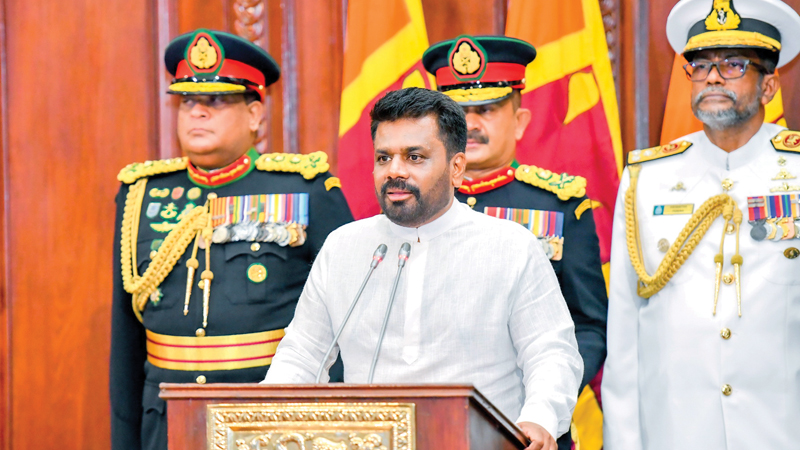A shared hope in the historic mandate of new President Anura Kumara Dissanayake is that he will take a hard line on corruption and end the decades-long, unfathomable impunity for perpetrators of financial crimes.
In the aftermath of the economic crisis that brought the country to its knees, people have awakened to the reality that their dreams of ‘a thriving nation with beautiful lives’ could have been realised if not for the deep-rooted corruption in the country.
The outcome of the freshly-concluded Presidential Election, which ushered in a revolutionary political transformation, marked the people’s desperation with the traditional political camps that only paid lip-service to fighting corruption while alternately holding ruling power since the country’s independence.
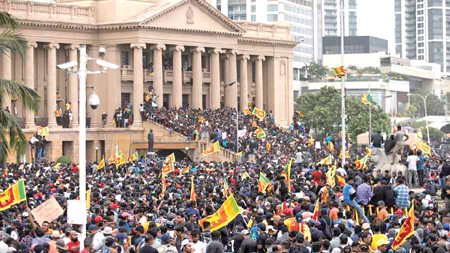
The People’s Struggle (Aragalaya) in 2022 was a mass awakening to the reality that the economic crisis could have been averted if not for weak governance and deep-rooted corruption
People have been weary of seeing those accused of grand corruption and financial frauds go off the hook time and again. They saw how some were more equal than others, and cried foul each time the laws were ‘bent’ to protect those in that privileged group.
President Dissanayake is now the ‘Chosen One’ for the Herculean task of cleaning the Augean stables of the country’s politics and administration, while bringing in comprehensive governance reforms to usher in a ‘system change’. It was, more or less, the battle cry of his party’s campaign, and against all odds, the people have rallied around him.
As an opposition member, especially in the Seventh, Eighth and Ninth Parliaments, his was arguably the most vibrant and fearless voice that exposed shady deals of influential political and business figures. Now that he is wielding the Executive powers, people have high hopes on him to deliver. Even if the public may cut him some slack on any other front, back-peddling on promises on the anti-corruption front would cost him dearly in terms of political capital.
It is easier said than done. Rotten to the core, major overhauls and shake ups of the prevailing system are expected to meet high resistance. Some such changes are best implemented in phases keeping in mind the socio-economic and political stability. It is a long journey that must be traversed with utmost care and wisdom.
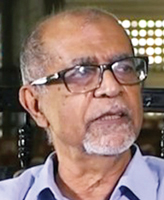
Prof. Jayadeva Uyangoda
No doubt, the new President is already feeling the massive weight of the people’s aspirations that brought him into power, on his shoulders. In his first speech after taking oaths in the highest elected office, he said, “I am not a magician,” probably to keep the people’s expectations in check. The President has already dissolved Parliament, well-aware that he needs a working majority in the House to effect the changes expected from him.
Political will
The Sunday Observer spoke to several long-time advocates of anti-corruption and governance reforms, on getting the priorities of the new political leadership right.
Colombo University Emeritus Professor of Political Science Jayadeva Uyangoda said, “Since 1994, eradicating corruption has been a major election slogan, but little progress has been made, mainly due to a lack of political will. I am sure, the new President understands how corruption works in Sri Lanka.
Hopefully, he and his Government will have the political will to take on the tri-partite alliance involving politicians, senior bureaucrats and the corporate sector in big-time corruption. At the same time, everyday, corruption seen in the country, such as taking bribes to admit children to elite schools should also be dealt with.”
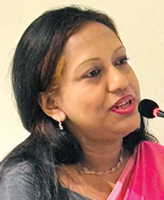
TISL Executive Director
Nadishani Perera
“If the new President is serious about fighting large-scale corruption, he should focus on two key aspects: building the capacity of the police, investigative agencies and the Attorney General’s Department and seeking expertise and infrastructure assistance from international agencies, such as the Stolen Asset Recovery Initiative (StAR), foreign Governments and local chapters of international organisations, such as Transparency International Sri Lanka (TISL),” he said.
A senior political analyst said good governance would never be a reality without democracy and accountability. He said, “The present Constitution, which allows for autocratic rule, should be replaced with a new Constitution to strengthen democracy. Politicians and bureaucrats should be accountable to the people. The recently passed repressive, draconian laws that restrict people’s freedom should be abolished. Of course, the President will have to wait until his hands are strengthened by the Parliamentary Election for these moves”.
Public service
Last year, Transparency International Sri Lanka (TISL) in partnership with Verité Research, Centre for Policy Alternatives (CPA), Sarvodaya Shramadana Movement, People’s Action for Free and Fair Elections (PAFFREL) and the National Peace Council (NPC) came up with a set of recommendations to improve governance in the country. These recommendations detailed in the ‘Civil Society Governance Diagnostic Report’, present valuable ingredients for a true system change. It was produced following an in-depth study conducted by Peradeniya University Professor of English Arjuna Parakrama.
“You have to attack the source of corruption, not the last link in the chain. The ‘masterminds’, who stand to gain financially from such acts must be exposed. For example, in the recent online visa controversy, I do not believe for a second that the public official acted in defiance of the court of his own will. Higher-ups likely exerted pressure on him. Likewise, public officers are often doing somebody’s bidding. They are only cogs in the wheel and putting them behind bars is not the point,” said Prof. Parakrama, who is currently the Chief Operating Officer of the Centre for Monitoring Election Violence (CMEV).
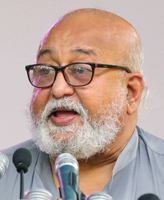
Prof. Arjuna Parakrama
He also stressed the importance of transparency in appointments to higher positions in the public service and state-owned enterprises. “People are expecting great things from the Government led by President Dissanayake. There have been many new appointments lately and one can question the transparency of that process. One has to practise what one preaches, however, hard it may be. The whole world is watching the new President. He has to set an example that goes beyond the usual platitudes,” he said.
System change
TISL Executive Director Nadishani Perera said that the new President needs to do some critical reforms to address the root causes that led the country to economic bankruptcy. “Civil society has presented a concrete action plan to this end. Similar recommendations are incorporated in the Governance Diagnostic Assessment, conducted by the International Monetary Fund (IMF). Implementing these reforms will help economic recovery and equitable and sustainable social recovery,” she said.
“Addressing the procurement-related corruption issues is key to resurrecting Sri Lanka. The country only has national procurement guidelines, which are not uniformly followed across institutions. Sri Lanka needs a comprehensive law regarding public procurement, including unsolicited proposals. Maintaining an online platform that publishes all high-value public procurement contracts is important. The National Procurement Commission has to be given independence and resources for better oversight,” she said.
Recalling that “bring back our stolen money” was a popular slogan among citizens during the People’s Struggle (Aragalaya) in 2022, the Executive Director highlighted the need for a fool-proof Proceeds of Crime Law for the recovery of stolen assets.
“The law alone is not enough. We are good at introducing new laws, but what is lacking is the space for relevant institutions to freely implement them. One does not have to sit and wait till the law is passed; tracing assets and identifying those responsible can begin immediately. Data leaks, such as the Pandora Papers, have already revealed information about assets stolen from our country. What is needed is political will,” she said.
The anti-corruption advocate also emphasised that the Commission to Investigate Allegations of Bribery or Corruption (CIABOC) must be both capable and willing to use its newfound powers as per the Anti-Corruption Act to proactively set the anti-corruption agenda in Sri Lanka. “It must go beyond minor complaints and take action against high-profile white-collar criminals who have stolen millions from this nation. To the new President, we say, “This is your time to demonstrate that you are serious about a system change by committing to implement these critical reforms’,” she added.
The benchmarks have been set higher for President Dissanayake as he gets down to work.
How he uses the political space that has opened up to walk the talk on driving out the culture of corruption and instating transparent and accountable governance will craft his story in time to come.





